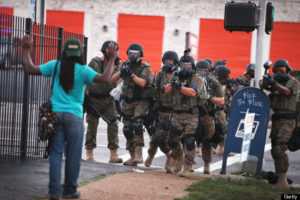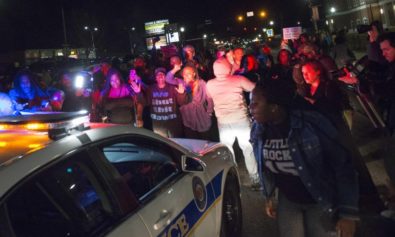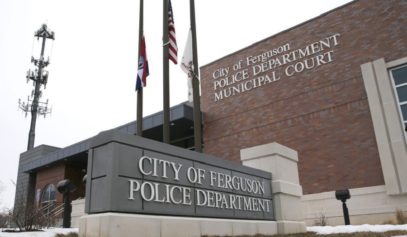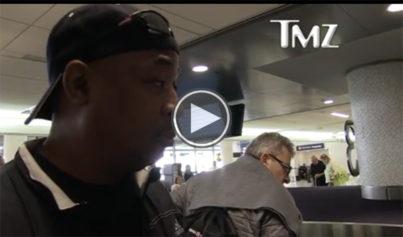If white people don’t believe police conduct is a problem, is there any hope of reforming American police forces to improve relations with the African-American community?
This week brings us another poll showing yet another yawning racial gap in American perceptions. A new NBC News/Wall Street Journal poll has found that while just 28 percent of African-Americans say they’re confident the police in their community treat Blacks and whites equally, 70 percent of white respondents are confident that they do. In addition, while only 40 percent of African-Americans say they trust police in their community won’t use excessive force on suspects, 70 percent of whites are confident the police won’t use excessive force.
Clearly, either Blacks and whites in America are not interacting with the same police force — or the police treat Blacks and whites very differently.
So the question becomes, if polls consistently reveal a deep problem in the way police treat African-Americans — and the polls are backed up by seemingly daily incidents of police abuse and misconduct directed at people of color — when is America going to do something about it?
As the NBC News story pointed out, this racial gap on perceptions of police behavior is a longstanding one. An October 1995 survey taken in the same month that O.J. Simpson was acquitted and Louis Farrakhan’s Million Man March took place showed a similar racial gap — 62 percent of whites said they had confidence that police in their community treat both races equally, while just 32 percent of Blacks said the same.
In other words, African-Americans have been crying out for a very long time about police conduct, but very little has changed. In fact, a New York Times story this week revealed that at least 400 towns in America have predominantly white police forces working in predominantly Black towns. Police chiefs were quoted in the story complaining about how hard it is to find a Black cop candidate — a problem that apparently has been vexing them for decades.
Though most African-Americans can tell you that having a Black cop is no guarantee that the cop will respect African-Americans, adding some diversity to the force is certainly a good place to start.
But instead of focusing on the mindset of American police that could cause so many African-Americans to distrust them, the U.S. Congress this week held a hearing on police equipment. After the uprising in Ferguson, Missouri, it is not the actions of the police that Congress has chosen to focus on — they are directing their attention to the size of the guns and trucks used by the police force.
Since 1990, the federal government has given about $5.1 billion in military equipment to local police forces in a Defense Department transfer program known as the 1033 program.
“These programs were established with a very good intention: to provide equipment that would help law enforcement perform their duties,” said Sen. Tom Carper, D-Delaware, chairman of the Senate Homeland and Governmental Affairs Committee. “The question is whether what our police receive matches what they truly need to uphold the law.”
Mark Lomax, a former Pennsylvania state police major and the executive director of the National Tactical Officers Association, told the lawmakers that at times such equipment is necessary to protect law enforcement.
“The threat that firearms pose to law enforcement officers and the public during violent, critical incidents have proven armored rescue vehicles have become as essential as individually worn body armor or helmets when saving lives,” he said.
But Peter Kraska, a professor at Eastern Kentucky University’s School of Justice Studies, blamed America’s war on crime, drugs and terrorism for prompting “widespread police militarization.”
“By declaring war, we have opened the door for outfitting our police to be soldiers with a warrior mindset,” he said.



